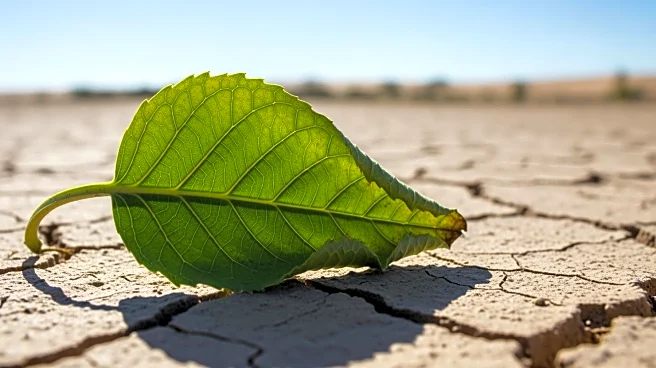What's Happening?
Biofuels, once hailed as a sustainable alternative to fossil fuels, are facing criticism for their environmental impact and inefficiency. According to a report by Transport & Environment (T&E), biofuels have increased carbon dioxide emissions by 16% compared
to fossil fuels. The production of biofuels requires significant land and water resources, contributing to deforestation and water scarcity. Despite these issues, biofuel production is rising, driven by government subsidies and industry lobbying. The report highlights that biofuels derived from food crops, such as corn and wheat, are particularly problematic, as they drive up food prices and contribute to biodiversity loss.
Why It's Important?
The criticism of biofuels has significant implications for U.S. energy policy and environmental strategies. As the U.S. seeks to reduce carbon emissions, the reliance on biofuels may undermine these efforts, given their associated environmental costs. The agricultural sector, particularly in regions like the Corn Belt, benefits from biofuel production, influencing political support for subsidies. However, the broader environmental impact, including increased emissions and biodiversity loss, poses challenges for sustainable development. The shipping and aviation industries' reliance on biofuels as a means to reduce emissions further complicates the issue, potentially exacerbating environmental harm.
What's Next?
The future of biofuels in the U.S. may involve increased scrutiny and potential policy shifts. As awareness of the environmental impact grows, there may be calls for reducing subsidies and exploring alternative energy sources, such as solar power, which offers greater efficiency and lower environmental impact. The shipping and aviation industries may need to reassess their reliance on biofuels and consider more sustainable options. Policymakers could face pressure to balance economic interests with environmental sustainability, potentially leading to legislative changes that prioritize cleaner energy solutions.
Beyond the Headlines
The debate over biofuels highlights broader ethical and environmental considerations in energy production. The reliance on food crops for fuel raises questions about food security and the prioritization of energy over human needs. Additionally, the impact on biodiversity and ecosystems underscores the need for holistic approaches to energy policy that consider long-term environmental health. As the global community grapples with climate change, the role of biofuels may be reevaluated in favor of more sustainable and less harmful alternatives.















